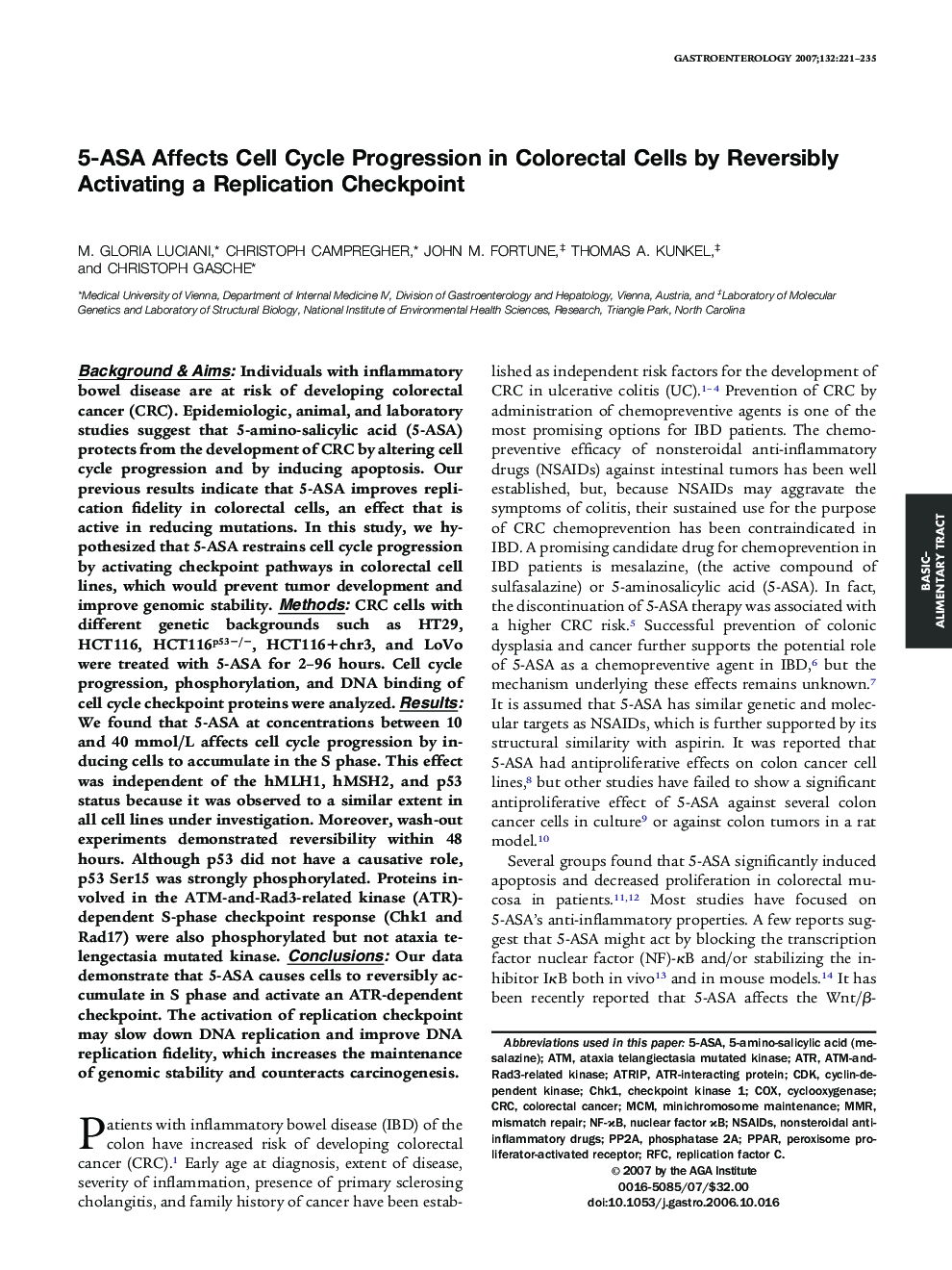| کد مقاله | کد نشریه | سال انتشار | مقاله انگلیسی | نسخه تمام متن |
|---|---|---|---|---|
| 3296319 | 1209867 | 2007 | 15 صفحه PDF | دانلود رایگان |

Background & Aims: Individuals with inflammatory bowel disease are at risk of developing colorectal cancer (CRC). Epidemiologic, animal, and laboratory studies suggest that 5-amino-salicylic acid (5-ASA) protects from the development of CRC by altering cell cycle progression and by inducing apoptosis. Our previous results indicate that 5-ASA improves replication fidelity in colorectal cells, an effect that is active in reducing mutations. In this study, we hypothesized that 5-ASA restrains cell cycle progression by activating checkpoint pathways in colorectal cell lines, which would prevent tumor development and improve genomic stability. Methods: CRC cells with different genetic backgrounds such as HT29, HCT116, HCT116p53−/−, HCT116+chr3, and LoVo were treated with 5-ASA for 2–96 hours. Cell cycle progression, phosphorylation, and DNA binding of cell cycle checkpoint proteins were analyzed. Results: We found that 5-ASA at concentrations between 10 and 40 mmol/L affects cell cycle progression by inducing cells to accumulate in the S phase. This effect was independent of the hMLH1, hMSH2, and p53 status because it was observed to a similar extent in all cell lines under investigation. Moreover, wash-out experiments demonstrated reversibility within 48 hours. Although p53 did not have a causative role, p53 Ser15 was strongly phosphorylated. Proteins involved in the ATM-and-Rad3-related kinase (ATR)-dependent S-phase checkpoint response (Chk1 and Rad17) were also phosphorylated but not ataxia telengectasia mutated kinase. Conclusions: Our data demonstrate that 5-ASA causes cells to reversibly accumulate in S phase and activate an ATR-dependent checkpoint. The activation of replication checkpoint may slow down DNA replication and improve DNA replication fidelity, which increases the maintenance of genomic stability and counteracts carcinogenesis.
Journal: Gastroenterology - Volume 132, Issue 1, January 2007, Pages 221–235